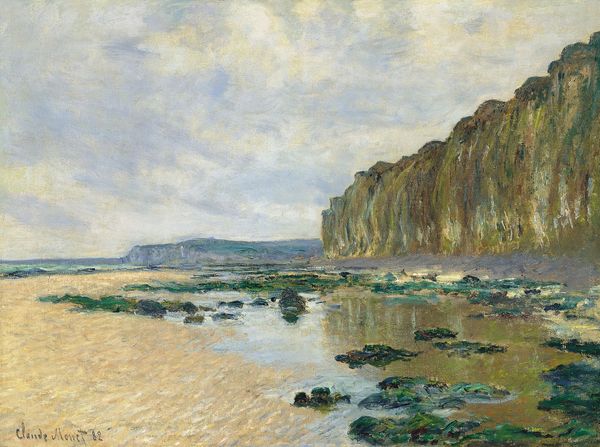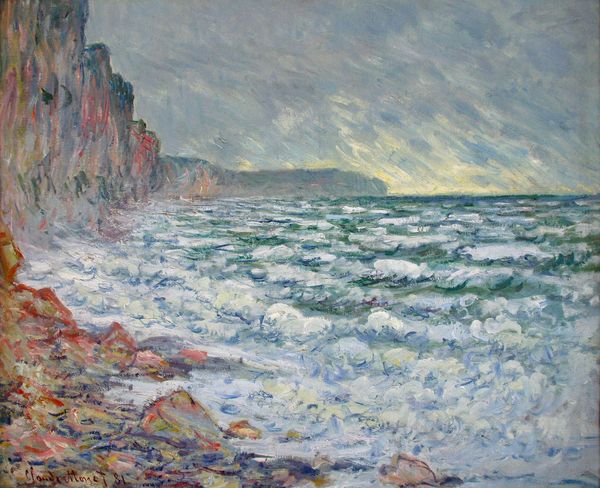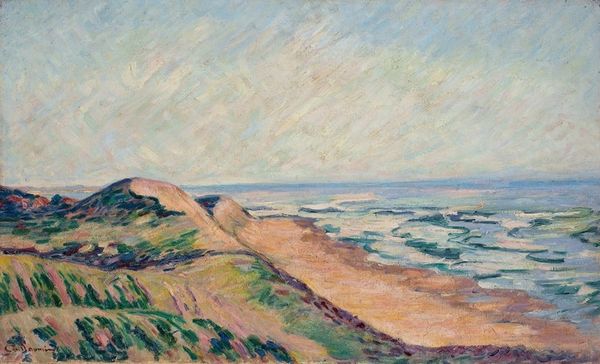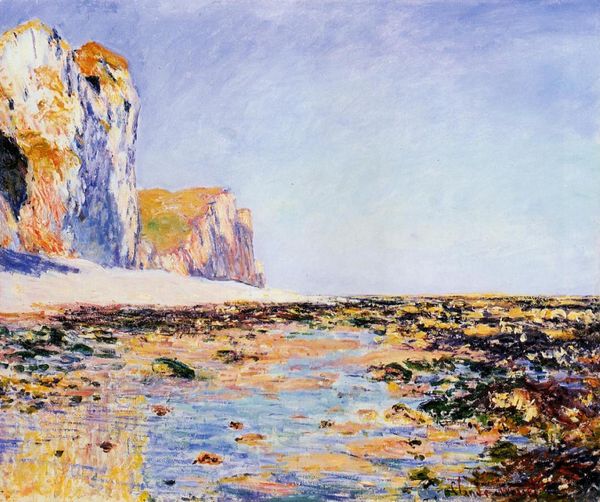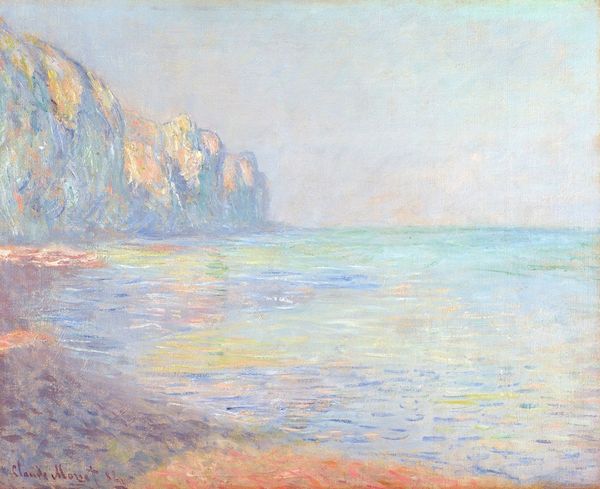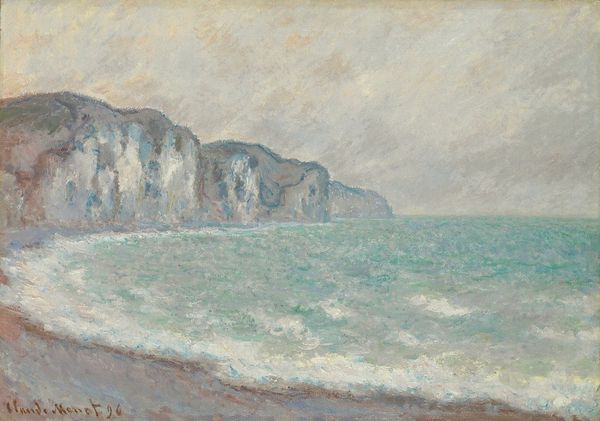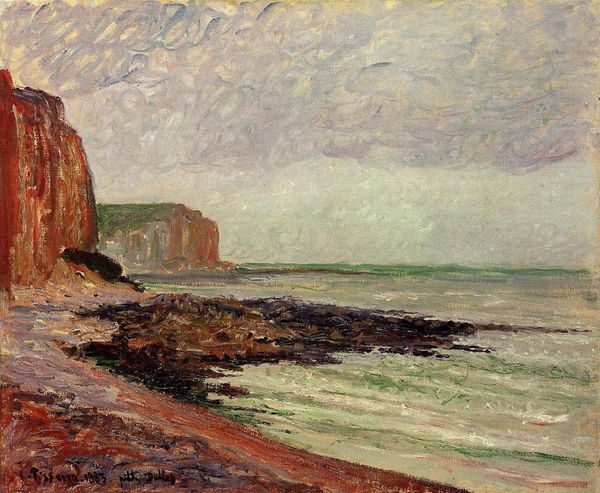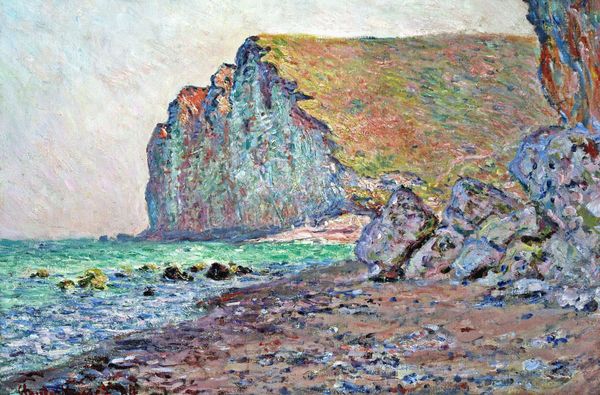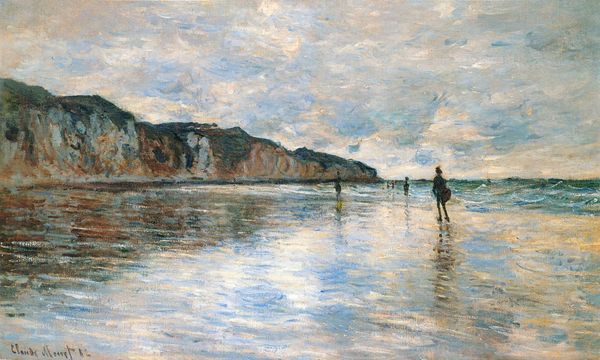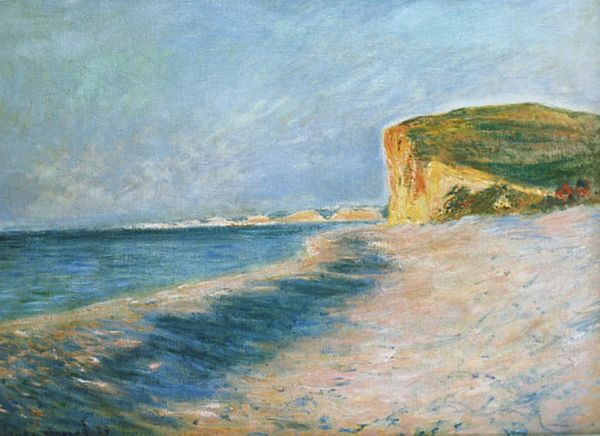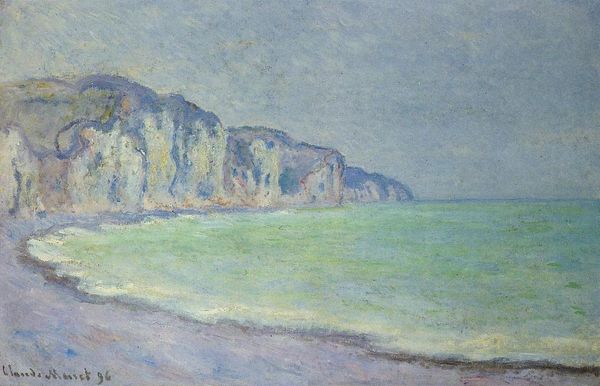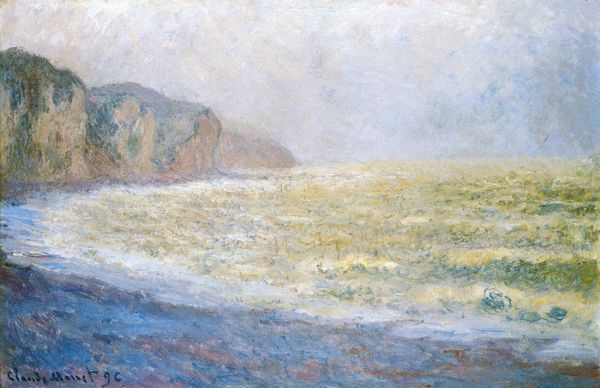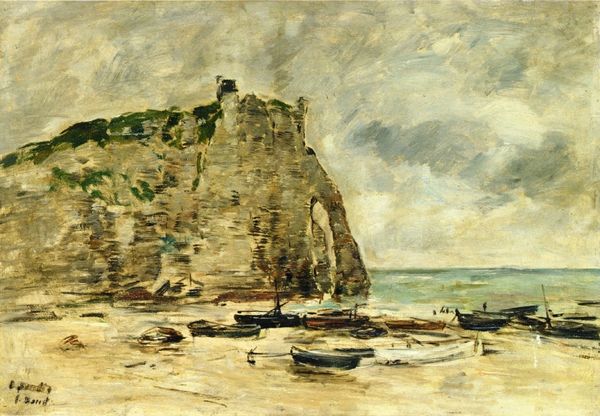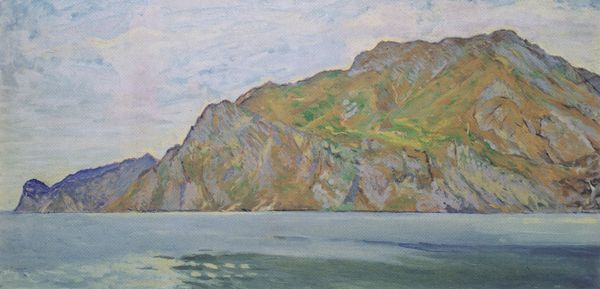
painting, plein-air, oil-paint
#
impressionist
#
cliff
#
painting
#
impressionism
#
impressionist painting style
#
plein-air
#
oil-paint
#
landscape
#
impressionist landscape
#
ocean
#
seascape
#
natural-landscape
#
coastline landscape
#
sea
Copyright: Public domain
Claude Monet made this painting, Low Tide at Varengeville 02, with oil on canvas. The magic of Monet lies in his ability to capture the mutable qualities of light and atmosphere through the materiality of paint. You can almost feel the dampness of the air and the grit of the sand underfoot, and the very substance of the cliff. Consider the way Monet applied the paint, using loose brushstrokes to build up layers of color and texture. He clearly worked "en plein air", as the French say, directly in front of the motif. Note how the surface quality becomes rougher and more expressive. It’s as though Monet is building a physical replica of the scene before him. The thick impasto creates a tactile surface, inviting us to engage with the painting not just visually, but also sensorially. In the end, Monet elevated the manual act of painting to a new level of artistic expression. His work highlights the vital role of materials, process, and context in understanding and appreciating a work of art.
Comments
No comments
Be the first to comment and join the conversation on the ultimate creative platform.
